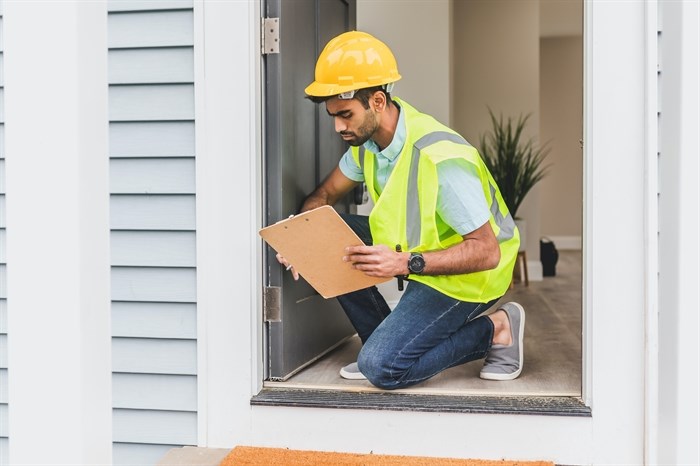Lack of building inspectors bottlenecking home building in Kamloops, Okanagan
The fact that there’s a shortage of skilled tradespeople to build the homes needed for rapidly growing Kamloops and Okanagan populations is no secret.
But a shortage of building inspectors working for local governments is a bigger problem.
“There’s a shortage in both areas but the shortage of inspectors is much more likely to cause any bottlenecks because one inspector can only inspect so many homes in a day,” Dan Winer, executive officer for the Canadian Home Builders of the Central Okanagan told iNFOnews.ca.
While local governments may say they are adequately staffed, the reality is different, as evidenced by a Lake Country council meeting Winer watched recently.
“On the one hand they say they have enough staffing,” he said. “On the other hand, they’ll say they look to the contractor world to get more of these homes approved and they can’t find independent contractors and even freelancers with the expertise.”
READ MORE: Southern Interior construction industry facing serious issues
The Building Officials' Association of BC doesn’t keep stats on job vacancies but does offer programs to train inspectors.
Ideally those trainees are already red seal construction and plumbing tradespeople (the association doesn’t train electricians) but they can be people taking their apprenticeship training at the same time.
While a trained carpenter may know a lot about how to build a home, they still need to learn all aspects of the BC Building Code as it applies to their field to become a certified inspector.
That may seem too much to ask of someone who is already making big bucks in construction but there are reasons for people to go the inspector route.
“One the advantages of working for local government is, if you’ve been working on the tools, sometimes that can take a toll on your body,” Trevor Welsh, vice-president of the association, told iNFOnews.ca.
“The other piece is, when you’re working in the private sector, there’s a lot of additional hours and additional time on the job site whereas working for local government does provide you that flexibility. You have that traditional Monday to Friday, 8:30 to 4:30 type job and you have predictability in the hours you’re going to work so you have a bit better work life balance.”
Not to mention municipal quality benefits and pensions.
For more on the association and the training opportunities they offer, go here.
The shortage of inspectors, Winer says, is province-wide, which creates its own problems.
“The good ones get poached and jump from municipality to municipality because their expertise is in so high of demand,” he said. “You have this knowledge gap within your municipalities on what’s happened in the past.”
Anecdotally, municipal staff tell his members there are enough Level 1 inspectors but it’s the more skilled Level 2 and 3 inspectors that are needed for the more complex builds.
The situation is not so grim, right now, in Kamloops, according to Tom Eggers, second-vice president of that region’s branch of the homebuilder’s association.
“The industry has really slowed down over the last six to nine months,” he told iNFOnews.ca. “But if it gets busy again, we go right back to how it was.”
When it was busy, the City of Kamloops was so short staffed with plan checkers that inspectors were called off the worksites one day a week to help fill that gap.
What the shortage means is not only a delay in one part of the work getting done but the headaches caused by trying to reschedule the next trade in the line.
An example would be a delay in getting plumbing inspected. That prevents the floor laying crew from coming in as scheduled the next day. Those workers might be booked elsewhere and not be available again for another week or two.
“Delays cost money,” Eggers pointed out.
“The other part of it is the antiquated way of doing things,” Winer said. “Does a building inspector need to go to a job site or, in this day and age of technology, could the builder bring a camera around from room to room and demonstrate that everything is set up to code as required? That would allow an inspector to complete more jobs in a shorter period of time in a way that is more climate friendly for less money. We haven’t got to that point yet and that’s what we’re going to have to do if we’re going to re-establish the balance.”
The City of Kelowna is working on ChatGPT technology to allow that to happen but others in the region are not that far along, Winer said.
What’s also needed, along with more government support to train inspectors, is a major shift in attitude to get more people interested in working in the trades.
READ MORE: Thousands of skilled training dollars going unused in Okanagan, Kamloops
“In my generation, we were pushed to go to college and the trades were a waste of time,” Eggers, who is owner of Chimera Construction, said. “I think we’re starting to see, now that everybody’s panicking, that maybe trades people aren’t so bad after all and we really need them and you can make a pretty good living at it. I think honestly, it’s a little bit sad but I think we’re starting to see it turn around. I think that young people need to be encouraged to go into the trades because it’s a great, respectable way to earn a living.”
Not only that, Winer added, it’s a field of employment that’s going to be in high demand for many years to come.
To contact a reporter for this story, email Rob Munro or call 250-808-0143 or email the editor. You can also submit photos, videos or news tips to the newsroom and be entered to win a monthly prize draw.
We welcome your comments and opinions on our stories but play nice. We won't censor or delete comments unless they contain off-topic statements or links, unnecessary vulgarity, false facts, spam or obviously fake profiles. If you have any concerns about what you see in comments, email the editor in the link above.




